Cross Country Season on Flotrack 2013Sep 10, 2013 by John Lawson
Race Reflection: The World Mt. Running Champs and Uganda at the World Stage
Race Reflection: The World Mt. Running Champs and Uganda at the World Stage

Before John Lawson arrived at Cal, he competed at the World Mountain Running Championships in Poland. In the junior race, Lawson finished 39th in 44:26. Though it was quite the experience, Lawson came home with a new appreciation for his "speedy friends in East Africa." Feel free to read his blog racedayricecakes to learn more about his experience.
This Sunday I was fortunate enough to compete in the World Mt. Running Championship in Krynica-Zdroj, Poland. Many people I call friends and acquaintances are probably aware of this by now as I have unabashedly been publishing any small updates on just about every social media device created. Although this is slightly embarrassing in retrospect, sometimes I feel almost an obligation to throw the sport in people’s faces, figuratively stir the pot, so that someday America’s most primitive sport can see the light of day on TV and maybe even the best can receive the sponsorships that I think they deserve.
This Sunday I was fortunate enough to compete in the World Mt. Running Championship in Krynica-Zdroj, Poland. Many people I call friends and acquaintances are probably aware of this by now as I have unabashedly been publishing any small updates on just about every social media device created. Although this is slightly embarrassing in retrospect, sometimes I feel almost an obligation to throw the sport in people’s faces, figuratively stir the pot, so that someday America’s most primitive sport can see the light of day on TV and maybe even the best can receive the sponsorships that I think they deserve.
After reading Adharanand Finn’s Running With The Kenyans, I felt I had a clearer understanding of the oft misunderstood African semi-professional running culture. Finn paints a portrait of Kenya’s notorious running capital, Iten, where even Kenyan athletes running faster than America’s premier running icons struggle to land sponsorships, much less sustainable ones to really support their families. The author states several reasons for this, many being the poverty stricken state of the 3rd world country, lack of marketability of athletes, and frankly because the white world is bored of seeing another Kenyan champion.
Kenya was not at the World Championship this weekend, however Africa was represented by four skinny young Ugandan men named Phillip Kiplimo, Geoffrey Kusuro, Nathan Ayeko, and Peter Kibet (in order of finishing place). Having only four athletes represented on a senior men’s (19 and up) team is considered the absolute minimum for a team score, as six are permitted to come with the first four scoring. Each place counts as 1 point and the team with the lowest numerical score wins a big silver cup and gold medals. This weekend Team Uganda finished with a score of 10 points.
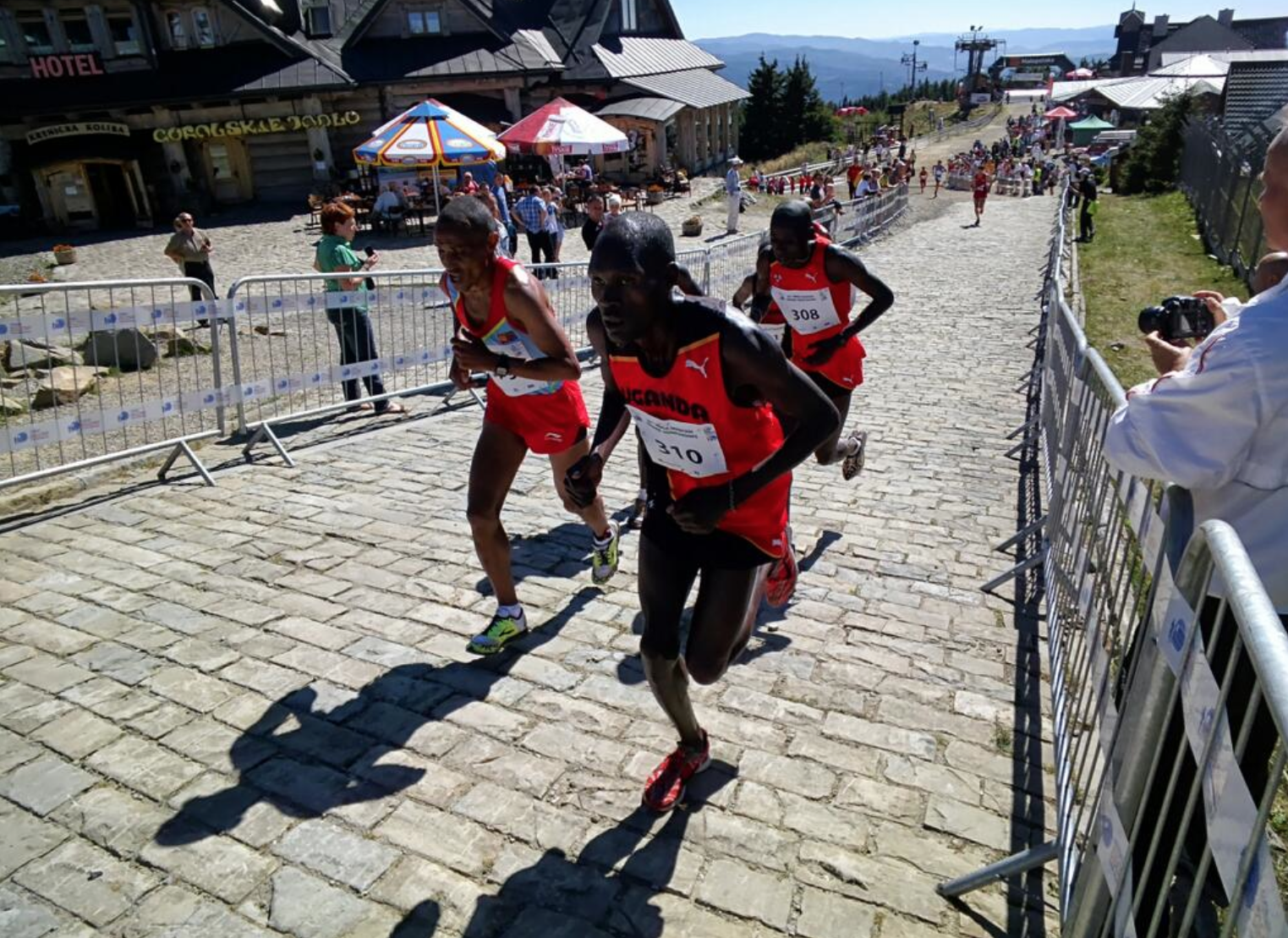 Photo: Richard Bolt
Photo: Richard Bolt
Team Uganda placed individually 1,2,3, and yes, 4. They ran in a pack the whole way, occasionally shouting in their native tongue back to a teammate falling back something that sounded like, “Hey man, get your ass up here!!!” and continued to set precedence as a domineering force.
 Photo: Richard Bolt
Photo: Richard BoltTeam Uganda placed individually 1,2,3, and yes, 4. They ran in a pack the whole way, occasionally shouting in their native tongue back to a teammate falling back something that sounded like, “Hey man, get your ass up here!!!” and continued to set precedence as a domineering force.
With the Ugandan’s also living in the Hotel Pegaz, I got to spend a lot of time getting to know these guys, as I was eating, living and often hanging with them all for about a week. I first hit it off with Peter, the most experienced team member when we pee’d in the bushes together on the way to the hotel at a gas station. Peter Kibet, placing forth at the race, quickly explained to me after that, “It was a very bad day for him,” never mind the fact that he handed the world’s best trail runners their head in a 13.5K course that is supremely undermined by the words “horribly difficult”.
Peter is the Ugandan that I became closest with because after admiring my ironman wristwatch (worth about $35 new) told me he didn’t own a watch. 20 minutes later we were up in his room trading a world champion Uganda jersey and shorts for my wristwatch which he was very fond of. Burdened by guilt on so many levels, and feeling shameful of my privileged white upbringing, I made sure to throw in a USA issued shirt, an old pair of black Nike training shorts, a pair of old Nike trainers, and, as I’ll soon explain, a black Nike headband. Peter seemed happy with the transaction and we all spent the rest of the afternoon watching weird Polish westerns and teaching Phillip how to swim in the pool with floaties.
I inquired about the sponsorship status of my four friends. Only Peter had a sponsorship, that from Puma, which occasionally supplied him with gear but in contract offered no fiscal support at all. Of the others, all were jobless outside of their running careers, included Geoffrey’s with his amazing 5K PR of 13:12 (although admittedly track is not “his specialty”). Among Nathan’s marathon times and 20 year old Phillip’s 1st place title that Sunday, it is undeniable that these athletes would be huge targets of athletic endorsement in the states. It made me see just how wide the gap is between the advantages of our two distant nations.
The men are all friendly, passionately good-humored and affectionate even after our first couple exposures. Phillip was notorious among our team for shaking your hand and not letting go for several minutes as you talked, walked and joked with him. At the opening ceremony on the second night their thinly-veiled discomfort was evident as they became the big hit to take photos with among all the other teams. Athletes and civilians (American’s included) would walk over to the tight-knit four of them and without introduction have family and teammates snap shots of them together. You could tell that by the end of the night, their new-found “fame” had fatigued them although they never wavered in spirit or kindness to the others.
Back to the Peter’s headband. Although it really wasn’t my place, I couldn’t help but to encourage the Ugandan athletes to wear something that differentiated themselves from their fellow Africans in competition. As a product of the Anglo-saxon ignorance, it is without a doubt that individual identities the ever-present flock of African elites are lost in the “flock” of elite African’s each year. In America we only remember the things that set these world bests apart from their African counterparts, for example:
- Mo Farah, Somali-Born Brit, for his charisma, cute British accent, and the “Mo-bot” victory laps that have become his signature crowd pleaser.
- Ezikiel Kemboi, Kenyan, for that ridiculous homestretch act where he goes into lane 8, exposes his emaciated stomach and starts dancing
- Lawi, Kenyan U of Arizona star, who actually kicks so much ass in the NCAA that in explanation for “only” doubling at Indoor Nationals nonchalantly remarked, “Sometimes you have to give other people some chances to win other things”
- Lopez Lemong, Nike OTC athlete, who was a sponsored figurehead for VISA rightfully glorifying his journey from running away from life as a child soldier, a triumphant subject that he has written a book about.
Although all these athletes are among the world’s very best, it is undeniable that these elite African-born runners above have become household names in the running community. However, despite Mo’s recent dominance on the track, there are still numerous East Africans that break the tape first each year, yet when asked who won the race I think many Americans either mumble something quickly under their breath or honestly admit that they can’t recall their name(s). I understand that this topic is sensitive; we are trying to support our rising fleet of American’s that are starting to break major ice at the international level (i.e. Ben True’s heroic battle with Edwin Soi at Reiti), and that’s important. Still, American’s love a story and a bold identity, and at the World stage, we really don’t know a thing about the lives of these East African stars until a tragedy happens like the late great Sammy Wanjiru’s premature death.
As I watched the Ugandans step up the podium in spots 1, 2 and 3 I was humbled to notice that none of their sweats matched like all the other teams in attendance that night. Even more remarkable was the realization that although they were the heroes of the day, not a single one of my Ugandan friends would ever see a photo of themselves on the meadow stand once they got back home.
I came to the keyboard days after the competition to reflect on the lives of these four young men who touched me by their humility, and modest means. I know that they work hard to feed their already budding families at home (only 20 year old Phillip didn’t have any children), and I wish them the absolute best in the future. Hopefully this provokes a second thought for frustrated American bloggers before they trash talk the African dominance destined to live on at NCAA’s this Fall. We should learn to respect our speedy friends in East Africa and give them a chance to let their unique personalities shine on a domestic and international front.
Related Content
 Replay: UIL Region 4-5A and Region 4-6A | Apr 19 @ 9 AM
Replay: UIL Region 4-5A and Region 4-6A | Apr 19 @ 9 AMApr 19, 2024
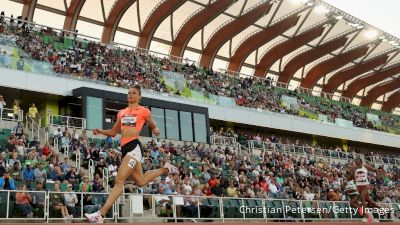 Rai Benjamin, Athing Mu And Sydney McLaughlin-Levrone Headline Mt. SAC
Rai Benjamin, Athing Mu And Sydney McLaughlin-Levrone Headline Mt. SACApr 19, 2024
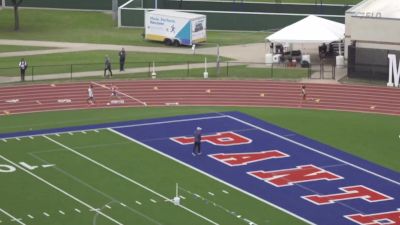 Replay: UIL Region 2-6A Region 3-3A | Apr 19 @ 9 AM
Replay: UIL Region 2-6A Region 3-3A | Apr 19 @ 9 AMApr 19, 2024
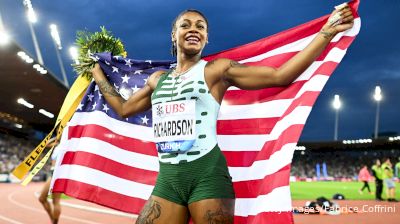 Diamond League Xiamen 2024 To Include USA Track Star Sha'Carri Richardson
Diamond League Xiamen 2024 To Include USA Track Star Sha'Carri RichardsonApr 19, 2024
 Marathon Master's World Record-Holder Kenenisa Bekele Excited For Return To London Marathon
Marathon Master's World Record-Holder Kenenisa Bekele Excited For Return To London MarathonApr 19, 2024
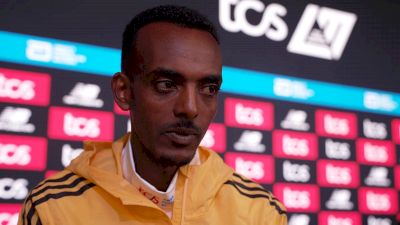 Tamirat Tola Is Confident In His Training Heading Into London Marathon
Tamirat Tola Is Confident In His Training Heading Into London MarathonApr 19, 2024
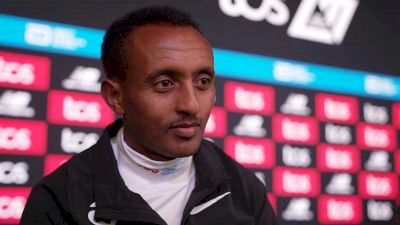 Leul Gebresilase Prepared For 2024 TCS London Marathon
Leul Gebresilase Prepared For 2024 TCS London MarathonApr 19, 2024
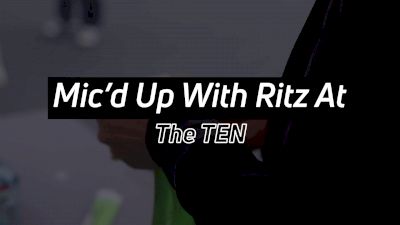 Mic'd Up With Ritz At The TEN
Mic'd Up With Ritz At The TENApr 19, 2024
 FloSports Recognized Globally By International Sports Press Association
FloSports Recognized Globally By International Sports Press AssociationApr 18, 2024